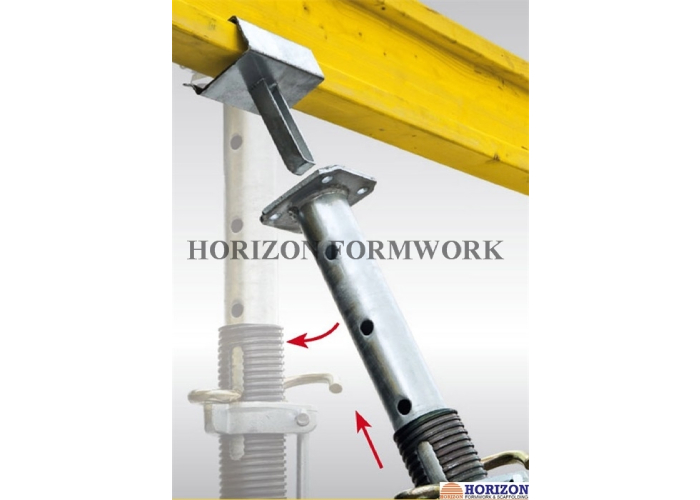Oct . 13, 2024 17:26 Back to list
Innovative Solutions in China's Plastic Wall Formwork Industry for Modern Construction
The Rise of China’s Plastic Wall Formwork A Modern Solution for Construction
In recent years, the construction industry has seen a remarkable transformation driven by innovation and the need for efficiency. Among the various advancements, plastic wall formwork from China has emerged as a prominent solution, offering numerous benefits over traditional materials such as wood and metal. This article explores the characteristics, advantages, and evolving applications of plastic wall formwork in construction.
Understanding Plastic Wall Formwork
Plastic wall formwork is a modular system used to mold concrete structures, particularly walls. Made from high-density polyethylene (HDPE) or polypropylene, these plastic forms are lightweight, durable, and resistant to weather conditions and chemical damage. Unlike traditional materials, plastic formwork does not require extensive treatment and can be reused multiple times without significant wear. This versatility makes it an appealing choice for contractors and builders looking for cost-effective and sustainable solutions.
Advantages of Plastic Wall Formwork
1. Cost Efficiency One of the most significant benefits of plastic wall formwork is its cost-effectiveness. While the initial investment might be higher than traditional wood or metal forms, the long-term savings are substantial. Plastic forms can be reused for many projects, reducing the overall material costs. Additionally, the speed of installation and removal allows for shorter project timelines, which further cuts down on labor costs.
2. Durability and Longevity Plastic formwork is highly durable and can withstand various environmental factors, including moisture, temperature changes, and chemical exposure. This characteristic not only extends the lifespan of the formwork but also results in better quality concrete finishes with fewer imperfections. Traditional materials often suffer from warping or degradation over time, which can compromise the integrity of the concrete structure.
3. Ease of Handling The lightweight nature of plastic formwork makes it easier to handle and transport. Workers can erect and dismantle these forms with minimal effort compared to heavier alternatives. This ease of handling contributes to increased safety on construction sites, as the risk of injury associated with lifting heavy materials is significantly reduced.
china plastic wall formwork

4. Environmental Benefits With the growing emphasis on sustainable construction practices, plastic wall formwork provides an eco-friendly alternative to traditional materials. Many manufacturers use recycled plastics in their formwork production, and the ability to reuse forms multiple times further minimizes waste. Additionally, the absence of chemical treatments often used in wood formwork contributes to a healthier working environment.
5. Customization and Flexibility Plastic wall formwork offers excellent customization options. Available in various sizes and shapes, they can be tailored to meet the specific requirements of a project. This adaptability makes them suitable for various applications, from small residential buildings to large infrastructure projects.
Applications in the Construction Industry
The versatility of plastic wall formwork has led to its growing popularity in numerous construction applications. It is particularly advantageous in projects requiring rapid construction, such as in emergency housing solutions and pre-fabricated buildings. Moreover, its use is increasingly being seen in urban construction where space and labor constraints are critical factors.
From commercial buildings to residential developments, plastic wall formwork is being adopted worldwide. China's construction industry, one of the largest in the world, is at the forefront of using this innovative solution. As more contractors recognize the benefits of plastic formwork, its adoption is expected to rise, leading to more efficient and sustainable building practices.
Conclusion
The emergence of plastic wall formwork represents a significant evolution in construction methodologies. With its cost efficiency, durability, environmental benefits, and ease of handling, it is reshaping the landscape of building in China and beyond. As the demand for sustainable and efficient construction practices continues to grow, plastic wall formwork is positioned to play a pivotal role in the future of the industry. Embracing such innovations not only enhances construction processes but also contributes to a more sustainable and environmentally friendly future for our built environment.
-
High-Quality U Head Jack Scaffolding – Reliable Scaffolding Jack Head Manufacturer & Factory
NewsJul.08,2025
-
High-Quality I Beam H20 Leading Timber Beam H20 Material Factory, Exporters & Manufacturers
NewsJul.08,2025
-
High-Quality Powder Coating Steel Formwork - Durable & Corrosion Resistant Solutions
NewsJul.07,2025
-
Inclined Column Formwork Supplier – Durable & Precise Solutions for Unique Structures
NewsJul.07,2025
-
High-Quality Water Stop Solutions Trusted Water Stop Company & Suppliers
NewsJul.07,2025
-
High-Quality Formwork Material Supplier Reliable Manufacturer & Factory Solutions
NewsJul.06,2025